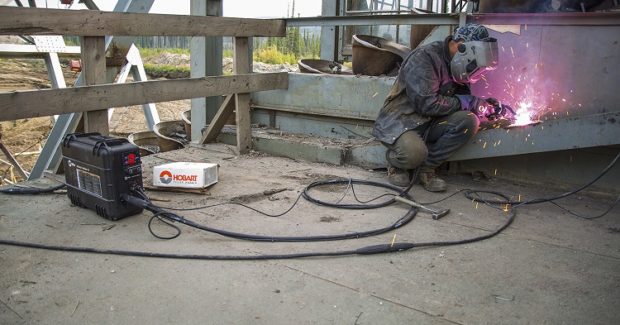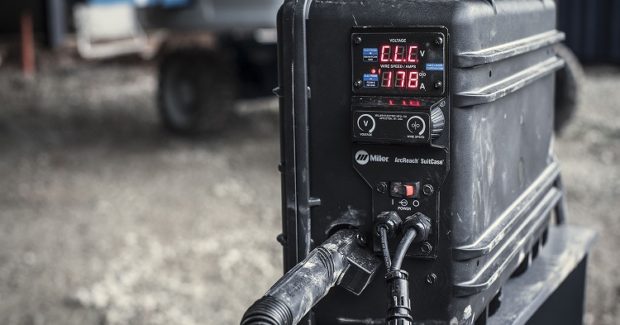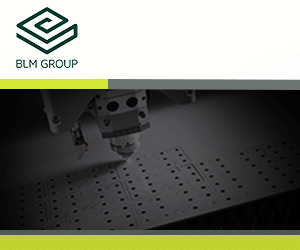Reduce Wire Feed Troubleshooting with Suitcase Wire Feeder Technology
You need to minimize birdnesting, erratic wire feed speed and other problems that are causing unplanned downtime and costing you money. So what technologies should you look for when you choose a durable suitcase wire feeder for the jobsite?
Posted: November 30, 2018
Smooth and consistent wire feeding is a key to producing quality welds and boosting productivity when using semi-automatic continuous wire feeding welding processes on the jobsite. Today’s suitcase wire feeders provide greater reliability and consistency when feeding wire thanks to technology advancements and improved design. These improvements help operations minimize problems that can result from poor wire feeding, such as birdnesting and erratic wire feed speed – issues that cause unplanned downtime and cost money. So what technologies should you look for when you choose a durable suitcase wire feeder for the jobsite?
REDUCED DRAG
Whether the job involves flux-cored arc welding (FCAW) or gas metal arc welding (GMAW or MIG), properly feeding the wire through the system and into the weld pool requires paying attention to several factors. It’s important to choose a high quality welding gun and use the right liner that’s correctly trimmed and kept free of debris. Another way to improve smoothness and consistency in wire feeding is to choose a wire feeder designed to reduce drag in the system. For example, our ArcReach® SuitCase wire feeders use an offset goalpost-style design for the inlet guides that helps direct the wire coming off the spool and into the gun. This design eliminates the wear that occurs in a tube-style guide design, which can cause drag in the wire feeding system. A tube-style inlet guide can easily become notched or grooved, especially when you’re using harder wires or wires that are high in tensile strength. As that groove gets deeper, it increases the amount of resistance and drag in the system, disrupting wire feeding.
The goalpost-style inlet guides are plated with a titanium nitride, providing a hard surface for the wire to slide between. The guides are also offset from each other, resulting in a much smoother trip from the spool to the gun.
IMPROVED ACCURACY
Choosing a wire feeder with a tachometer on the motor is another way to ensure better wire feeding. A tachometer measures the motor’s rpm, allowing the system to adjust speed as necessary and providing greater accuracy in wire feed speed. Without a tachometer, the wire feeder may be programmed for wire feed speed of 200 ipm, but you may not actually achieve that exact speed depending on motor temperature and other factors. All wire feeder motors are not created equal, and motors can change loads as they heat and cool. For example, you may start the day with a cold wire feeder motor and set the wire feed speed at 200 ipm. After a few hours of welding, you may have to adjust the wire feed speed because the wire feeder motor has warmed up and is running slower. Then, after your lunch break, you may have to adjust wire feed speed again after the motor has cooled.
A tachometer eliminates these manual adjustments. Motor speed is constantly measured by the tachometer, allowing the system to regulate wire feed speed as necessary, given other factors, so that you get exactly the speed you set. This consistency promotes smooth wire feeding out of the gun – and ultimately better weld quality.
A DURABLE SYSTEM
Investing in wire feeders with these technologies will help improve wire feeding on the jobsite. It’s also important to choose a suitcase feeder designed for maximum portability and durability to provide you the greatest versatility, even on the most demanding jobsites. Some wire feeders also offer simplified setup, allowing users to change the wire and drive roll in a matter of minutes and save downtime. For example, a wire feeder with ArcReach technology eliminates control cables for remote voltage adjustment, saving significant setup time and reducing trip and fall hazards on the jobsite. Because proper wire feeding requires attention to the entire system, it’s important to pair your wire feeder with a high quality welding power source and welding gun to produce the best results.
Today’s suitcase wire feeders have improved technology to provide smooth and predictable wire feeding so that you can spend less downtime troubleshooting and more time welding.
Subscribe to learn the latest in manufacturing.
















